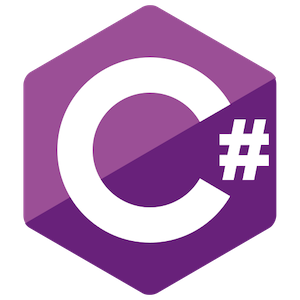cross-posted from: https://lemmygrad.ml/post/5257349
Fore some times, mastodon has been unsafe for black and other minorities users, the peoples impacted by this have been complaining about it openly, emphasizing the lack of good moderation tools to make instances safer. The  s on the dev team and userbase however have essentially plugged their ears and refused to listen, and instead engaged in bad faith, tone policing, minimizing racism, dismissing the testimony of black users, and telling them to “curate their experience better” with filters and blocks (even though a big part of the complaint is that this doesn’t work).
s on the dev team and userbase however have essentially plugged their ears and refused to listen, and instead engaged in bad faith, tone policing, minimizing racism, dismissing the testimony of black users, and telling them to “curate their experience better” with filters and blocks (even though a big part of the complaint is that this doesn’t work).
Seeing this, some black peoples who have been complaining about racism on mastodon and the lack of security features to deal with it have taken things in their own hands and made a fork of Mastodon named Awujo.
This whole saga (and my own personal experience in another FOSS project this past year) has really punctuated that FOSS conceived as an exercise in collective ownership is a lie. Instead of large companies, FOSS is ruled by a collection of petty tyrants clinging to ownership of release channels. The release channel is the thing in FOSS. Arbitrating what gets distributed through a release channel is what gives people clout & power in the FOSS world, and these are - almost universally - not democratically controlled. Whenever people criticize a project, they are usually given one of two replies:
- Fork it
- Pull requests welcome
#1 is barely worth addressing, it’s equivalent to telling someone to go fuck themselves or “if you don’t like it, leave”. PRs are much more malicious because it’s just leading people on. Getting them to waste their time doing a bunch of work that the tyrant always intended to throw away in retribution. I contribute to a project where, when I’m writing a feature, the thing at the top of my mind is “how can I build a pseudo-legal case why this should be merged” instead of “how can I make this change safely on a technical level”. Because access to the project is gated by a mercurial tyrant. I only persist because the project is amazing and if I don’t deal with this man (and it is almost always men) other people will continue to be driven away by him.
At this point I am verging on changing my definition of “FOSS project” to require democratic governance.
Watching this happen with F-Droid. A badly needed UI refresh is getting repeatedly watered down and delayed because one of the maintainers with veto power is a dinosaur who thinks people are gonna jump ship if the app looks more modern
Ironically, the dated UI is what makes me want to use third party clients like Droid-ify instead
There are loads of far better Mastodon/Misskey forks in terms of features and privacy if you want a specifically trans themed fork of Misskey it’s not even hard
FOSS conceived as an exercise in collective ownership is a lie. Instead of large companies, FOSS is ruled by a collection of petty tyrants
I noticed day one that mastadon/lemmy’s code is basically feudalism (I am a serf on hexbear), the thing that was democratized was that anyone can become a feudal lord, and any serf can leave for another feudal lord. Neither perfect nor democracy, but in some strange technical sense, an improvement, maybe?
leaning too hard on “code is law” here. The code is run on a sever which is a tool that can be managed by people in whatever social context they decide. Just as for example a bus is not necessarily a feudal system even if it can only be driven by the person with the key with everyone else along for the ride, if for instance it is a bus belonging to an organization which communally decides who drives it and where.
Most existing fediverse servers may presently be fairly described as feudal but that’s not something that I think must be addressed in code. It’s up to people to form organizations that run fediverse servers democratically (some already are) and to promote this as the fediverse ideal.
You’re correct in some sense that in the digital realm there is no scarcity for most things (despite the attempts of the cryptocurrency people to create scarcity artificially). The only scarce resource left is reputation. And people use names to attach their reputation assessments to. So a given fork (name) of a project becomes imbued with more scarce reputation than the others, and control over this scarce resource becomes a source of power in an otherwise utopian world.
p2p > decentralized > centralized
Forking works, but it requires very serious problems on the main repo so that people will seek out a fork.
Most commonly it just stops getting maintained, or it gets bought out by a company.
You can always attempt to create a fork anyways, but you will probably spend more time advertising than actually working on the thing.
This reminds me of The Tyranny of Structurelessness, a great article about how organizations without formal power structures inevitably become oppressive.
Informal power structures are still power structures but the positions of power are not chosen in a democratic way. Popularity and perceived necessity to the organization are the only things that matter. Because leadership in informal power structures is taken not given, people who abuse power are more likely to end up in those positions.
I would not say it is structureless - actually the structure is very precisely encoded in access permissions for the repo. A clear hierarchy exists from owner/maintainer/collaborator/contributor.
How can this issue be mitigated? The current system of a (usually not so) benevolent dictator(s) is the model for all FOSS projects I know of, lemmy included. As you’ve touched on, this is not at all democratic. However, I don’t know if there are any version control hosting platforms (gitea, forgejo, etc.) that work without the code being held in the iron fist of an authoritarian code monkey. Then there is the issue of who should be allowed to contribute; there needs to be a way of keeping out people who contribute malware, or from taking so much control that they themselves become a code tyrant without a king code monkey to spitefully swat down improvements.
Even if those issues are resolved, there is still the massive gulf in power between code monkeys and non-technical users. If none of the code monkeys deign to implement features or bug fixes that non-technical users want or need, then those users are shit out of luck. Another wrench is thrown into things when it’s software that runs on a server and there are also sysadmins who could pull the plug at any time even if a democratic system was built into the software.
I guess what I’m getting at is: what is a way to make FOSS as anarchic as possible without opening holes that bad actors could easily exploit and without leaving users incapable of making code be beholden to the code monkeys? The main thing FOSS has going for it is that its governance isn’t as shit as how tech companies would handle it, and that’s a very low bar to get over.
deleted by creator
deleted by creator
Mastodon? Oh you mean what they based Pleroma, Homeserver, and Misskey (which I am already 4 forks away from) off of? The app which I have soundcloud, goodreads, and youtube themed versions of already? Which are all individually better at scaling than Mastodon because they aren’t anywhere near people who tolerate Eugene?
Not optimistic about any project run by people still taking the Mastodon corporation seriously that they want to stop bullying by removing QUOTING and the SEARCH bar
oh damn it’s finally happening! i had been following @[email protected]’s posts for a while now (and an alt fedi microblogging service he was working on) so it’s great to potentially see a POC-friendly Twitter alt gain steam.
foreign made a video a while back on twitter’s (many) problems as well as on Bluesky and Mastodon. it looks like we’re all on the same page on the Whiteness of Mastodon and its ineffective moderation tools!
Good luck to them.
I don’t feel like a fork of Mastodon would be successful unless they can pull enough people away from the main project.
I’d also be wary of giving them money when they don’t even have a public repository yet.
As long as they maintain federation, it should work pretty seamlessly i think.
I’m talking about development of the code. “Maintaining federation” means pulling in most of the changes from the main Mastodon sources, and they said it’s a “hard fork”, so it seems like they’re going to be creating a lot of work for themselves. It would have to get a lot of support for the devs to not just get burned out or demotivated if a bunch of the work is just maintaining compatibility.
There are already a bunch of mastodon forks/alternative AP implementations anyway. Misskey, gotosocial just off the top of my head.
It’s hard to convey how dysfunctional the mastodon FOSS project is beyond just linking you to see the number of un-merged pull requests.
Every open source project is dysfunctional.
deleted by creator
The Linux kernel project has an incredibly high barrier to entry, Linus has had to take anger management classes, lots of maintainers are burnt out, and they had a lot of drama over a Code of Conduct.
Just because the software quality is good, doesn’t mean the culture isn’t dysfunctional
Is the fork activity pub compatible?
You should ask directly to the peoples I linked for more info on the project, I just share because I think it’s important, I don’t know computer stuff.
I don’t have a mastadon account because that website is hell. Someone will probably ask it eventually.
You could say Mastodon has been cracked














